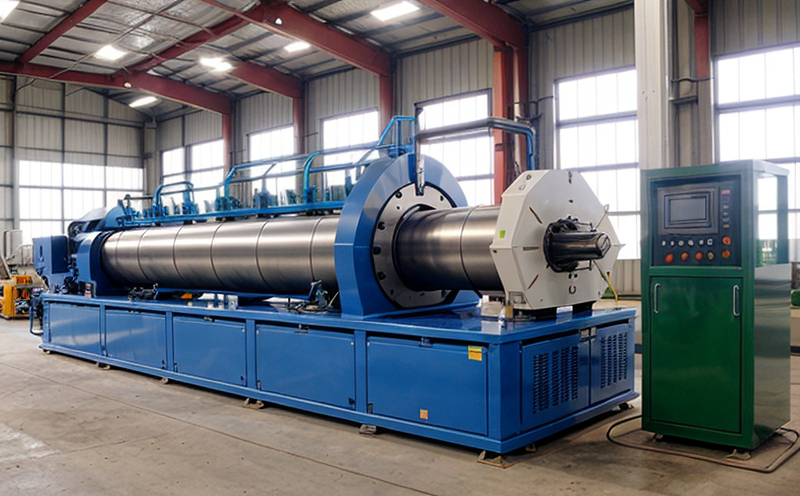EN 15446 Quality Assurance and Quality Control in Recycling Plants
The European Standard EN 15446 provides a framework for establishing, implementing, maintaining, and continuously improving the quality assurance (QA) and quality control (QC) systems within recycling plants. This standard is critical for ensuring consistent product quality and compliance with environmental regulations.
Recycling processes are complex, involving multiple stages that can impact the final recycled material's quality. EN 15446 addresses these complexities by providing detailed guidelines on how to implement QA/QC practices throughout the recycling lifecycle. This includes everything from raw material reception to finished product dispatch. The standard covers various aspects such as:
- Sampling and testing protocols
- Data management systems
- Training of personnel
- Process optimization and improvement
- Record keeping and audit trails
The implementation of EN 15446 ensures that recycling plants can meet stringent quality standards, which is essential for maintaining consumer confidence and meeting regulatory requirements. This standard is particularly relevant in the context of waste management and recycling testing as it provides a roadmap to achieve high-quality recycled materials.
Some key areas where EN 15446 plays a crucial role include:
| Aspect | Description |
|---|---|
| Sampling | Proper sampling techniques ensure that the test specimens accurately represent the recycled material. |
| Instrumentation | Use of appropriate equipment to measure properties such as density, moisture content, and particle size. |
| Data Management | Effective data management systems allow for consistent tracking of process parameters and test results. |
| Training | Regular training programs ensure that personnel are knowledgeable about QA/QC protocols and best practices. |
The standard also emphasizes the importance of continuous improvement, which involves regularly reviewing processes to identify areas for enhancement. This ongoing cycle ensures that recycling plants remain at the forefront of quality assurance practices.
With EN 15446 as a guiding principle, recycling plants can achieve higher levels of efficiency and effectiveness in their operations. By adhering to this standard, organizations not only enhance their internal processes but also contribute positively to environmental sustainability goals.
Eurolab Advantages
EuroLab is committed to providing comprehensive QA/QC testing services that meet the stringent requirements outlined in EN 15446. Our team of experts offers a range of benefits tailored specifically for recycling plants:
- Comprehensive Testing Capabilities: We offer a wide array of tests and analyses relevant to recycling processes, ensuring full compliance with international standards.
- Expertise in Recycling: Our professionals have extensive experience in the waste management sector, allowing us to provide tailored solutions for various recycling applications.
- State-of-the-Art Facilities: Equipped with advanced instrumentation and laboratories, EuroLab ensures accurate and reliable testing results.
- Regulatory Compliance: Our services are designed to help clients meet all necessary regulatory requirements, including those specified in EN 15446.
- Training Programs: We offer training sessions to enhance the skills of personnel involved in QA/QC processes.
- Continuous Improvement Support: Our team assists recycling plants in implementing best practices and continuously improving their quality assurance systems.
EuroLab's commitment to excellence ensures that clients receive high-quality services, leading to improved operational efficiency and enhanced product quality.
Competitive Advantage and Market Impact
The implementation of EN 15446 can significantly enhance a recycling plant’s competitive advantage. By adhering to this standard, plants demonstrate their commitment to maintaining high-quality recycled materials and comply with regulatory requirements. This not only boosts consumer confidence but also opens up new market opportunities.
Companies that adopt these practices are better positioned to meet the growing demand for sustainable products. The ability to provide consistently high-quality recycled materials is highly valued by consumers, especially those who prioritize environmental responsibility. Additionally, compliance with EN 15446 can lead to reduced operational costs due to improved efficiency and minimized waste.
From a broader market perspective, recycling plants that implement these standards contribute positively to the overall sustainability of industries reliant on recycled materials. This contributes to a more sustainable future, which is increasingly important in today’s global market. The adoption of EN 15446 can also lead to better relationships with suppliers and customers, as it demonstrates a commitment to quality and environmental responsibility.
In summary, the implementation of EN 15446 not only enhances operational efficiency but also provides significant competitive advantages in the recycling industry.
Use Cases and Application Examples
| Use Case | Description |
|---|---|
| Raw Material Reception Testing | Testing incoming raw materials to ensure they meet specified quality criteria. |
| Process Monitoring | Continuous monitoring of various stages in the recycling process to maintain consistent product quality. |
| Finished Product Inspection | Final checks on recycled products before dispatch, ensuring they meet required standards. |
| Performance Evaluation | Evaluating the performance of different processes and equipment against established criteria. |
In addition to these use cases, EN 15446 is particularly beneficial in the following scenarios:
- When a recycling plant needs to ensure that all incoming raw materials are suitable for processing.
- To maintain consistent quality throughout the recycling process by monitoring key parameters at various stages.
- In situations where finished products need to be inspected before being dispatched, ensuring they meet required standards.
- For evaluating the performance of different processes and equipment against established criteria, allowing continuous improvement.
These real-world applications demonstrate how EN 15446 can be effectively utilized in recycling plants to enhance quality assurance and control.





